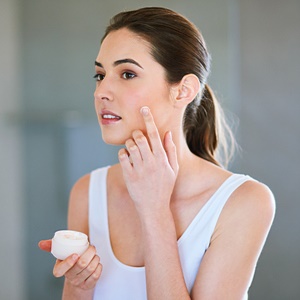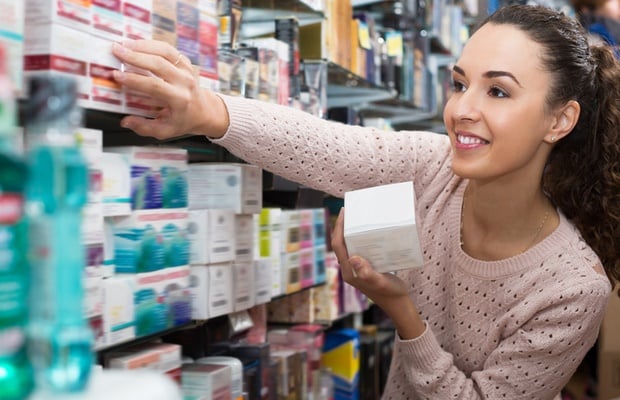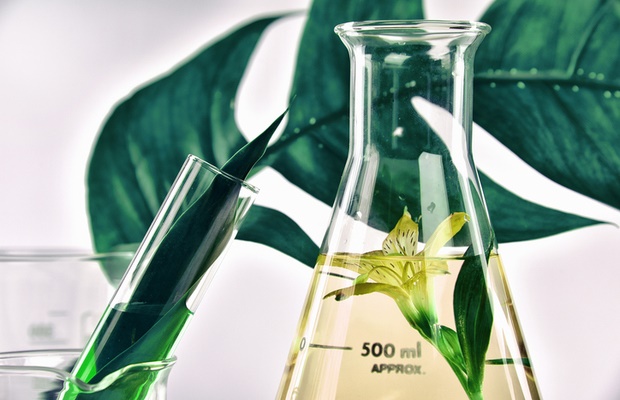
Another day, another skincare product. With so many attractive options and price points, it’s hard to choose a product that will work for you.
Be aware that what you read on the front of the label isn’t necessarily a true reflection of what the product is all about. For many of us, it’s easy to be swayed by clever marketing, highlighting key ingredients and extravagant claims.
The solution? Know your label – not the one in front, but the ingredient list on the back. Distinguishing a good skincare product from a bad one is as simple as a little bit of knowledge, access to the Internet and knowing what works for your skin.
1. Know your ingredients
That very long list of ingredients on the back of the packaging may be daunting, but there is no need to be intimidated by things like scientific names. Take your time and find out what what everything means.
Just because a product is labelled “organic” or “natural” doesn’t mean that it will be better for a sensitive skin. Many natural skincare products include volatile, fragrant essential oils, such as patchouli, ylang-ylang, lavender or citrus oils, that provide a lovely scent, but can be irritating to the skin. These fragrant oils can cause allergic reactions in people with sensitive skin.
On the other end of the spectrum, one should be aware of filler products, such as silicone and emollients, which give the products a silky texture and slippery feel. These ingredients are not necessarily harmful, but can make up the bulk of the product, while the actual active ingredients, such as antioxidants, can actually make up only a small percentage of the product. Know what you are looking for when choosing a product.

2. It’s in the top five
According to the FDA, ingredients in a product should appear in the order of predominance in a product, whether it's food or cosmetics. This regulation is followed in most countries, including South Africa. When you're shopping for skincare, look at the list of ingredients on the back – the first five ingredients will form the bulk of the product. If you're looking for active ingredients such as hyaluronic acid or retinol, a well-formulated product should rank these high up on the ingredient list.

3. Natural isn’t always better
According to Dr Ian Webster, a renowned dermatologist from Somerset West, raw organic ingredients can contain hundreds of individual compounds which the brand hasn't accounted for or tested in the final preparation. Raw botanicals containing these compounds may increase the skin’s sensitivity, and exacerbate allergic contact dermatitis and photo-allergic reactions (when the skin becomes more sensitive to the sun, leading to hyperpigmentation).
Allergic reactions to any beauty product you apply topically don’t discriminate between natural and synthetic – one person can be allergic to coconut oil, while someone else may have an unfavourable reaction to parabens.

4. Not all ingredients are toxic/cancer-causing
Some ingredients used in skincare products, such as parabens, have gained a bad reputation over the years as studies have shown that parabens can either alter or disrupt the body’s biological processes, such as hormonal functions. Studies have also found parabens in breast cancer tissue.
However, according to skincare expert Paula Begoun, the information about parabens is misleading as topical products remain in the uppermost layer of the skin and don't penetrate into the bloodstream. According to Dr Webster, current evidence shows that the levels of parabens found in cosmetic products are safe for human use.
Should an ingredient be described as a “toxin”, there are safe quantities for every single substance and scientists say the leading principle of toxicology is “the dose makes the poison”.
Most reputable skincare companies have a strict policy of safety first, efficacy second, according to Dr Webster. No product can be manufactured without strict toxicology and safety trials.

5. More expensive isn’t always better
When it comes to effective skincare, it's best to ignore the price point and brand name initially and go straight to the ingredient list. At the end of the day, it's all about the ingredients and the formulation of a product. Choose ingredients that will target your specific skincare concerns and make sure that these are quite high up on the ingredient list.

Disclaimer: What might work for one person may not work as well for another. If you are uncertain about some ingredients and you think you might have an allergic reaction, consult your dermatologist. Do a patch test with any new product to determine how your skin reacts.
Image credit: iStock




 Publications
Publications
 Partners
Partners















